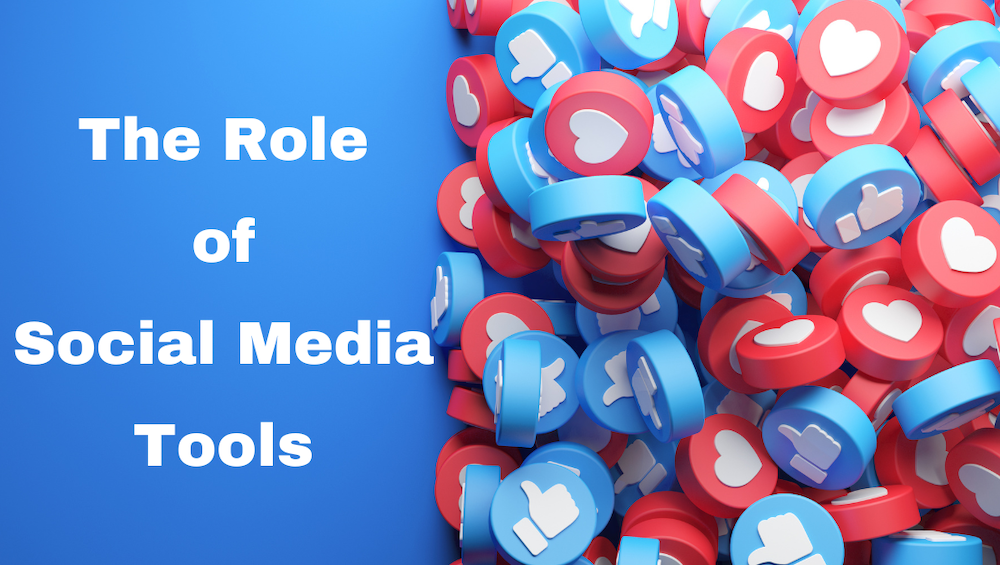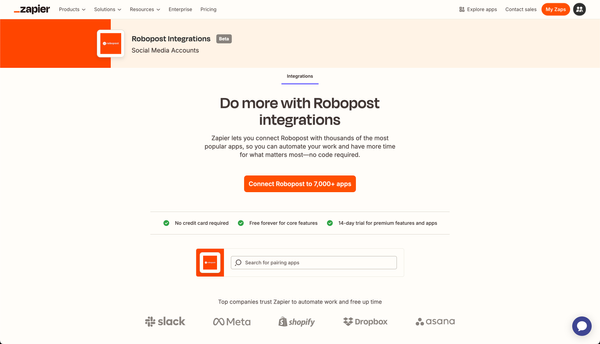The Role of Social Media Tools in Crafting Targeted Campaigns
Explore how social media tools enhance targeted campaigns through precise audience reach and strategic content.

Social media tools are getting more essential for marketers to create campaigns that connect with specific audiences. These tools allow businesses to segment, personalize, and engage their audiences, making marketing efforts more effective. Using these tools well can boost campaign success, strengthen brand loyalty, and increase sales.
Key Takeaways
- Advanced Targeting: Social media platforms let you create campaigns aimed at specific groups based on demographics, interests, and behaviors.
- Effective Strategies: Successful social media involves making interesting content and interacting with customers to build connections.
- Targeted Ads: Advertising on social media ensures your money is well spent by reaching the right audience and providing measurable results.
- Personalized Interactions: Talking to customers directly on social media builds brand loyalty and support, with their feedback helping improve campaigns.
Understanding Social Media's Targeting Power

Advanced Demographic Targeting
Understanding the details of advanced demographic targeting is key for creating campaigns that connect with specific audience segments. Demographic targeting lets marketers define their audience by age, gender, location, education, occupation, and income. This approach ensures content is relevant and tailored to the unique preferences and needs of different groups.
Social media platforms offer powerful tools to focus on audience specifics. For example, Facebook's Ads Manager allows targeting users based on many demographic details, ensuring your message reaches the most receptive individuals. Here's how demographic targeting can be segmented:
- Age and Gender: Tailor content to resonate with different age groups and gender identities.
- Geographic Location: Reach audiences in specific regions, cities, or even neighborhoods.
- Education and Occupation: Connect with users based on their educational background or job type.
- Income Level: Customize messaging for different economic segments.
Demographic targeting is essential for successful, targeted campaigns, providing a strategic and data-driven approach to social media marketing.
Behavioral and Interest-Based Segmentation
Behavioral and interest-based segmentation goes beyond basic demographics to look at your audience's behavior and interests. By studying their online activities, purchase history, and engagement with content, marketers can create campaigns that fit their audience's lifestyle and preferences.
- Understanding consumer behavior, such as what they plan to buy and their social status, is crucial for making targeted business strategies.
- Competitive analysis and customer surveys provide valuable insights that help create a more precise social media strategy.
- Aligning content with audience values and interests establishes your brand as a trusted authority, attracting potential leads.
Customizing your message to the specific interests and behaviors of your audience not only boosts engagement but also greatly improves conversion rates.
Utilizing Analytics for Audience Insights
Using analytics is essential for understanding your audience for social media marketing. These insights help marketers learn about their audience's behavior, preferences, and demographics. By analyzing data from social media platforms, businesses can adjust their strategies to better connect with their target audience, making their content more effective.
A data-driven approach has clear benefits. It helps brands adapt and optimize campaigns, improving brand awareness and conversion rates.
Additionally, analytics tools provide insights on audience engagement and conversion rates, which are crucial for improving lead generation strategies. Regularly monitoring these metrics leads to better results, making analytics a vital part of any social media campaign.
Strategies for Effective Social Media Campaigns

Creating Compelling Content for Target Audiences
Content is the most important part of social media. To create content that catches and keeps your audience's attention, you need to know their interests and needs. Start by researching what they like, whether it's educational, entertaining, or inspiring material.
Creating engaging content for social media lead generation requires knowing your audience, being creative, and connecting emotionally.
Here are some key strategies for creating content for your targeted campaigns:
- Know your audience: Understand their preferences, problems, and desires to make your content effective.
- Create engaging and valuable content: Ensure your content is relevant and provides value through informative articles, captivating images, or interactive polls.
- Use multimedia: Images or videos can make your content more attractive, memorable, and shareable.
Engagement Tactics for Customer Relationship Building
Engagement is the key to customer relationships. It's not enough to just post messages; brands need to have two-way conversations. Engaging proactively with followers and having genuine interactions build trust with your audience.
- Make an engagement plan that includes user-generated content, like #AskMeAnything sessions.
- Encourage interaction by asking for shares, retweets, or comments, and include clear calls to action.
- Use customer relationship management tools to track interactions and purchase decisions, tailoring content to your audience's needs.
Engagement builds relationships. We use social media to learn from our customers and community about how we can improve their experience.
Maximizing Campaign Performance with Targeted Advertising
Using Custom Audiences to Enhance Relevance
Optimizing Ad Spend with Precision Targeting
Precise targeting is key for social media advertising, to make the most of your ad budget. By using the advanced targeting features of social media platforms, businesses can focus their marketing on users who are most likely to engage and convert. This approach saves money and makes ads more relevant to the target audience.
Precision targeting helps businesses use their marketing budget wisely, improve customer experience, and achieve higher conversion rates by reaching the right audience.
To use precision targeting effectively, follow these steps:
- Define your target audience in detail, including demographics, interests, and behaviors.
- Use the targeting tools of social media platforms, like Facebook's Ads Manager, to reach your audience precisely.
- Continuously monitor and analyze your campaigns, adjusting targeting criteria as needed in real-time.
By following these practices, marketers can ensure their advertising budget is well-spent and delivers measurable results.
Tracking and Measuring Campaign Success
To ensure targeted social media campaigns are effective, it's important to track and measure their success. Using analytics tools, marketers can analyze campaign performance across various metrics. Regularly reviewing these metrics not only confirms the impact of the campaign but also guides adjustments to future strategies.
Here are key steps to ensure effective campaign tracking:
Consistently analyzing performance data allows marketers to refine their strategies, ensuring each campaign is more successful than the last.
It's not just about collecting data; it's about using data-driven insights to improve campaign performance.
Building Brand Loyalty Through Personalized Interactions

Personalized Communication Strategies
Personalization is also important for cultivating a loyal following. Today's consumers aren't just interested in products; they crave authentic, customized experiences that align with their unique preferences and needs. Brands that excel in personalization often see rewards, as a significant majority of consumers are more likely to buy from companies offering tailored experiences.
By prioritizing buyer personas in your strategy, every piece of content and interaction can be tailored to address your audience's specific pain points and preferences. This approach not only makes your communications more relevant but also strengthens the connection between your brand and its customers.
Email marketing is a good example of effective personalized communication. By segmenting customers based on interests and past purchases, businesses can send highly targeted emails that feel personal and pertinent. Similarly, social media platforms facilitate direct engagement through comments, likes, and messages, nurturing a sense of community and trust. Conducting polls, surveys, or live Q&A sessions provides valuable feedback and insights, enabling even more refined personalization in future campaigns.
Fostering Brand Advocacy and Community
Creating a community around a brand is key to building customer loyalty. By fostering connections, providing value, and nurturing loyalty, social media communities can greatly enhance brand awareness and customer retention.
Businesses can turn their audience into brand advocates in several ways:
- Mention target accounts in your posts and share their achievements.
- Follow social profiles to show genuine support.
- Engage in discussions by commenting on posts and sharing industry tips, avoiding sales pitches unless asked.
To build a strong social media community, create a sense of belonging. Encourage interaction and conversation among your followers by asking questions, starting discussions, or hosting live events like webinars or Q&A sessions. This not only helps people connect with others who share their interests but also fosters engagement and drives lead generation.
The Role of Customer Feedback in Refining Campaigns
When refining marketing campaigns, customer feedback is important for developing more effective strategies. Real-time feedback from social media helps marketers understand what customers like and dislike. By monitoring and analyzing comments, likes, shares, and direct messages, brands can adjust their campaigns based on these insights.
Customer feedback helps improve marketing plans and optimize advertising budgets. It allows brands to tailor content more precisely to different audience segments based on direct insights from the audience.
Responding to online questions and comments makes customers feel heard and strengthens their emotional connection to the brand. This personal touch drives customer loyalty and business growth. Using customer reviews, testimonials, and user-generated content on social media also boosts brand credibility and trust.
Customer Interaction | Impact on Campaigns |
|---|---|
Real-Time Feedback | Immediate Insights |
Comments & Reviews | Enhanced Credibility |
User-Generated Content | Peer Endorsements |
By integrating customer feedback into marketing strategies, businesses can create more engaging and customer-focused campaigns.
Conclusion
Social media tools have changed how businesses do marketing, making it possible to create very specific and effective campaigns. By using data analytics, businesses can understand their audience's behavior, interests, and demographics better, allowing them to create messages that feel personal. Targeted advertising not only uses the budget efficiently but also gets better results by reaching people who are likely to engage and convert. Successful marketing today relies on using social media platforms to connect with the target audience, encourage meaningful interactions, and build strong brand loyalty. The old way of broad advertising is being replaced by precise marketing, with social media tools at the center of creating targeted and impactful campaigns.
